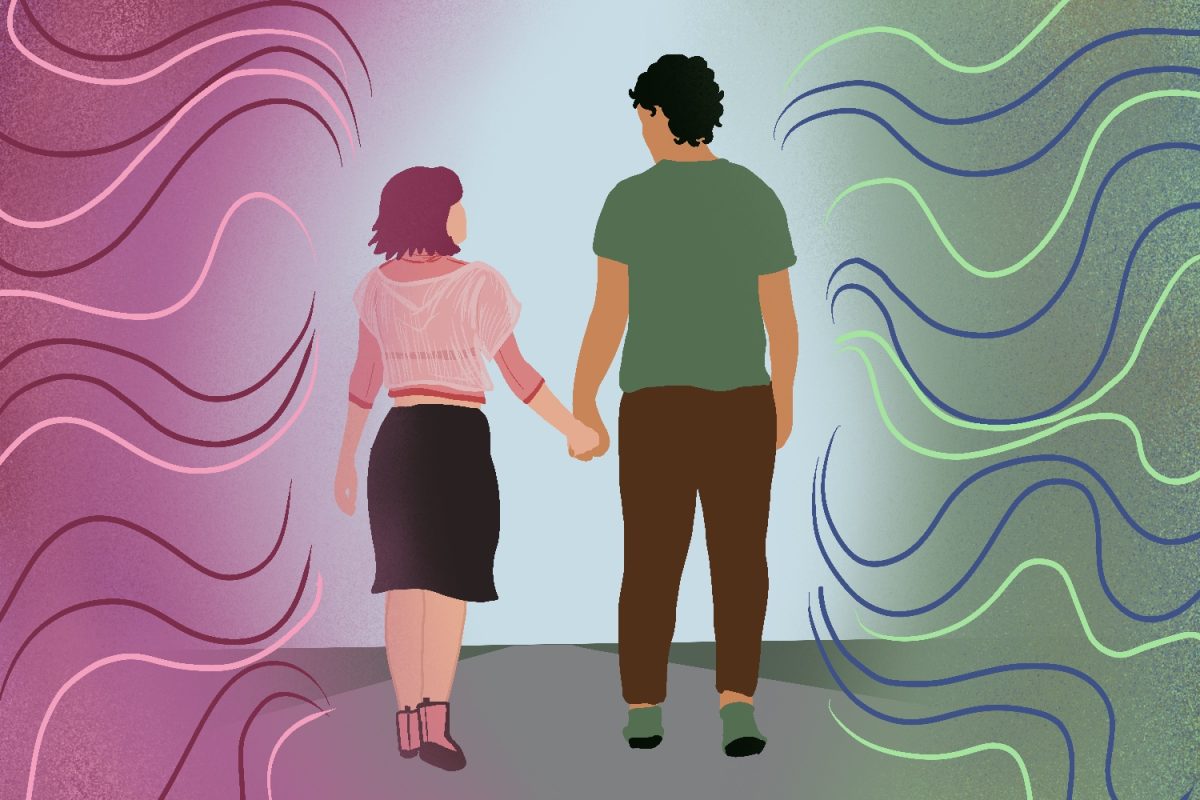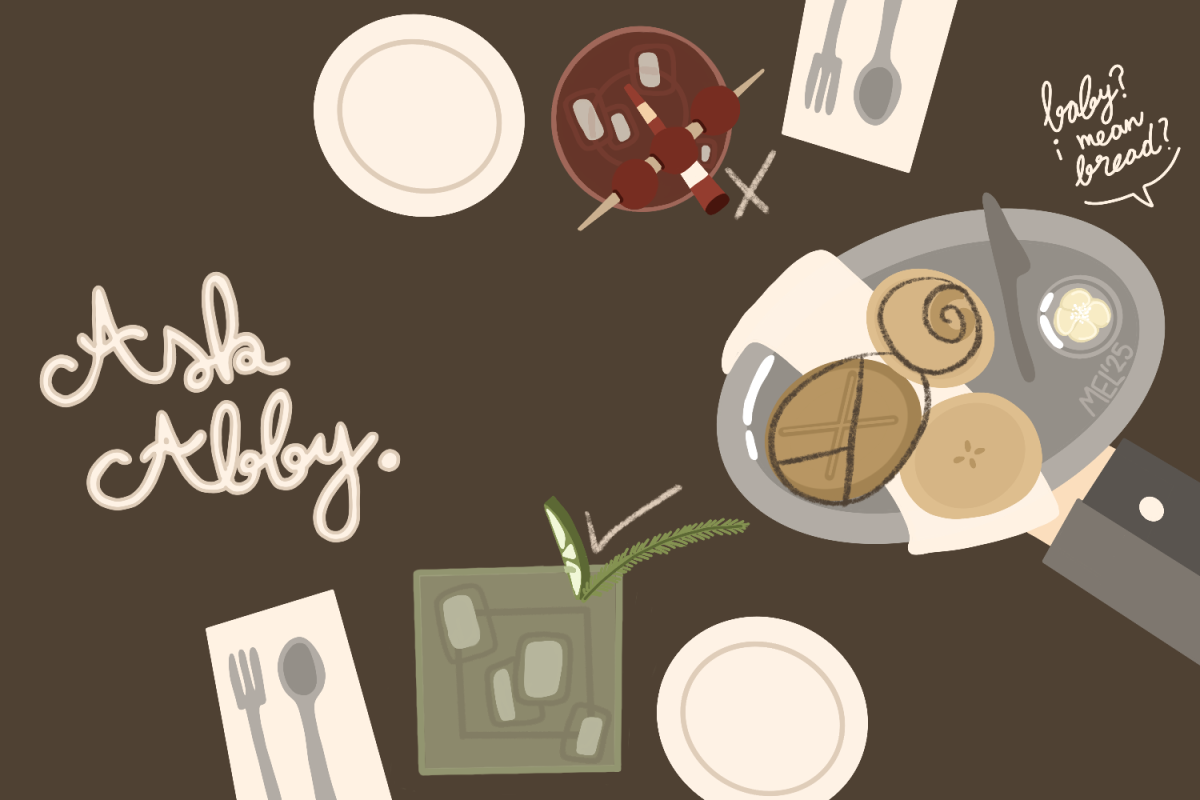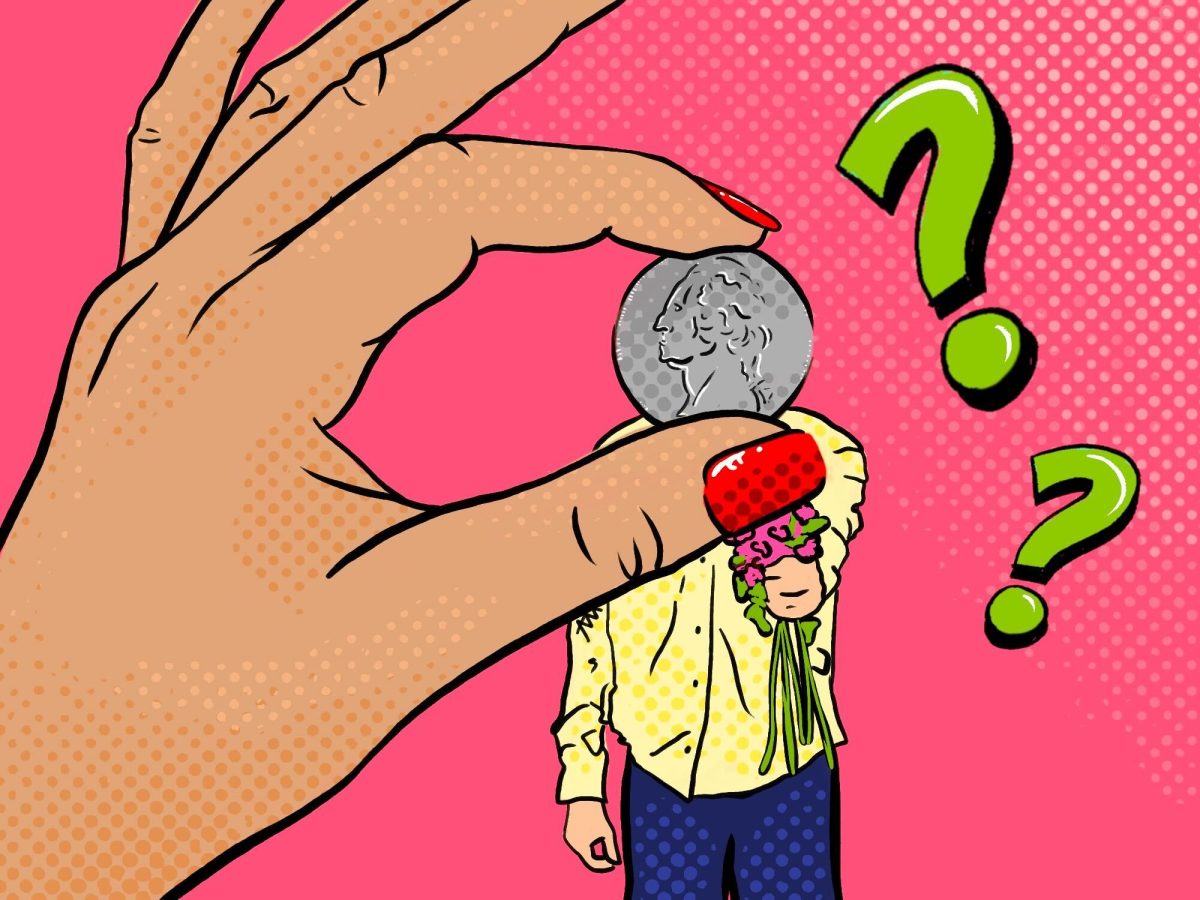Dear Abby: I have a sneaking suspicion that one of my close friends is in love with my boyfriend — or at least really likes him. Every time he comes around, she acts completely different. I feel like she changes herself only to get his attention. She’s always talking to him and even gets a little touchy. Am I seeing things, Abby? Or does my friend have a crush on my boyfriend? Help!
Let’s be real: There’s a certain kind of sixth sense that activates when someone starts orbiting your significant other a little too closely. It’s not quite jealousy. It’s not paranoia either. It’s just a gut feeling.
So here you are, watching your close friend transform into a flirty version of herself every time your boyfriend enters the room. She’s suddenly more giggly, more “oops-did-I-touch-your-arm-again” and more present than she’s ever been.
Is it weird? Yep. Is it something to panic about? Not yet. But should we unpack it? Absolutely.
First, you’re not crazy. We women are intuitive creatures, and when someone shifts their entire personality just to be noticed by someone you’re dating, that’s worth noticing. Your friend’s body language, tone and attention have changed, and it’s not in a “I’m-so-happy-for-you” kind of way. It’s giving “auditioning for a boyfriend she can’t have but wants anyway.”
Now, before you flip a table “Real Housewives” style, take a breath. The goal here isn’t to start drama — it’s to reclaim clarity. Is she acting overtly disrespectful? No. But is it a little icky that your “friend” can’t seem to act normal around your man? Absolutely.
The more I considered how universal your predicament is, I couldn’t help but wonder: How do you deal with your friend who is trying to compete for your lover’s affection?
The elephant in the room
Let’s address the question that’s likely been circling in your mind: Am I overreacting, or is my friend actually into my boyfriend?
The truth is, you’re probably not imagining this. Humans are social creatures with finely tuned instincts — especially when it comes to subtle shifts in social and romantic dynamics. If something feels off, it often is.
Your friend may not be fully aware of how she’s behaving, or she may be testing the limits under the guise of being “friendly.” Either way, the discomfort you’re feeling is valid. You don’t need a dramatic confession or a smoking gun to acknowledge the vibe has changed.
Let’s talk about what might really be happening.
Sometimes, when someone we’re close to sees us in a happy relationship — particularly one that feels grounded, affectionate and emotionally safe — it can trigger something deeper.
Envy doesn’t always come in the form of sabotage. Often, it shows up as mimicry. Your friend may not want your boyfriend specifically. She may want what the two of you represent: intimacy, validation and the comfort of being chosen. But wanting those feelings with your boyfriend? That’s where boundaries matter — and where silence stops being golden.
How this shows up can vary, but there are a few details to watch for. How much does she talk to your partner? What does she speak about? Is she speaking to anyone else in the room?
How does her tone switch when speaking to your boyfriend? Is it different from normal?
Does she dress differently?
And above all: Is she acting like someone she’s not?
If any of these boxes are checked, it might be time to have a conversation with both of them. Yes, I’m calling out your boyfriend here, too.
Pick-me girls and such
Another important player in this game is a larger societal issue. At first glance, your friend’s behavior might seem harmless — a little extra enthusiasm, a touch more laughter when he’s around or an almost exaggerated interest in whatever your boyfriend is talking about.
But when this shift is consistent, intentional and noticeably different from how she behaves with others, it becomes harder to ignore. This isn’t just about friendliness. It’s about performance — and more specifically, the kind of performance we’ve come to associate with the “pick-me girl.”
The “pick-me” persona thrives on quiet competition. She often presents herself as effortlessly cool — “not like other girls” — and goes out of her way to align herself with what she assumes men prefer.
And while that might be understandable in a dating context — albeit still problematic — it becomes far more damaging when it seeps into female friendships.
What makes the “pick-me” persona especially insidious in a friendship is how much it relies on proximity and perceived harmlessness.
She’s not flirting in front of you overtly. She’s just being friendly. She’s not dressing up for him. She just likes to look nice. She’s not trying to insert herself in your relationship. She’s just so glad you’re happy.
But when this behavior becomes a pattern — when she only acts this way around your boyfriend, or when her body language and energy shifts in a way she saves just for him — it no longer reads as supportive. It reads as strategic.
And here’s the deeper issue: This behavior chips away at the unspoken contract of friendship — the one built on trust, loyalty and mutual respect. No, your friend may not want to steal your boyfriend. But she is, intentionally or not, centering herself in your relationship — and that should never be the role of a friend.
So, what should you do?
First, don’t internalize the awkwardness as insecurity. It’s not insecure to notice when someone crosses a line. It’s intuitive.
Next, consider speaking to your boyfriend. This isn’t about making him responsible for someone else’s behavior, but it’s helpful to get his read on the situation. Keep it light and honest: “Have you noticed that [friend’s name] acts kind of different around you?” A grounded partner will likely have noticed, too, and will reassure you accordingly.
And if you feel like he’s feeding into it, well, that’s a topic for another article.
If the dynamic between your friend and your boyfriend continues or becomes more uncomfortable, you have every right to create distance. You don’t need to stage a confrontation if you’re not ready. Simply pull back — emotionally and logistically. Your relationship deserves to exist in a space that feels safe, respected and free from subtle power plays.
And finally, if you do choose to talk to your friend — and sometimes you should — keep it direct but compassionate. This doesn’t need to be about blame. It can be about clarity.
Try: “I’ve been feeling a little off about the way things feel when the three of us hang out. I value our friendship, and I just want to make sure we’re on the same page.” If she responds with defensiveness or dismissal, that says more than it needs to.

My point
Friendships, like any other relationship, thrive on mutual respect. When that balance is disrupted, even in small, flirty gestures, it can erode the foundation of your connection. You don’t owe anyone access to your relationship, especially if they can’t respect the boundaries that come with it.
In the end, trust your gut. You know your friend. You know your partner. But most importantly, you know when something feels off. Don’t ignore your feelings just to keep the peace. Protecting your relationship — and your own emotional clarity — is peace.



























































































































